Basic Care: White's Tree Frog
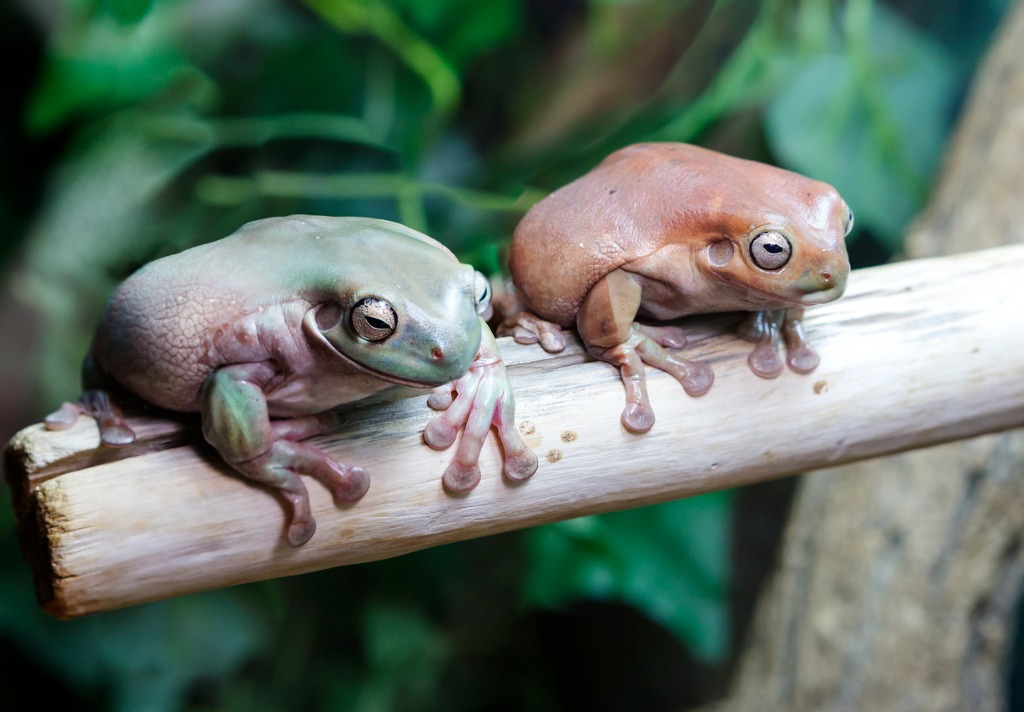 White's tree frogs are relatively easy to care for and are a good start for those looking to keep frogs as a pets.
White's tree frogs are relatively easy to care for and are a good start for those looking to keep frogs as a pets.
 White's tree frogs are relatively easy to care for and are a good start for those looking to keep frogs as a pets.
White's tree frogs are relatively easy to care for and are a good start for those looking to keep frogs as a pets.
African dwarf frogs (Hymenochirus sp.) are often sold as additions to tropical freshwater fish aquariums or as "living art" to be kept in small glass vases or other displays. In fact, these frogs often do not compete well with aggressive tropical fish and fail to thrive in community aquariums. They also need a larger more complex environments than a 1 gallon vase filled with water lined with gravel in order to do well. 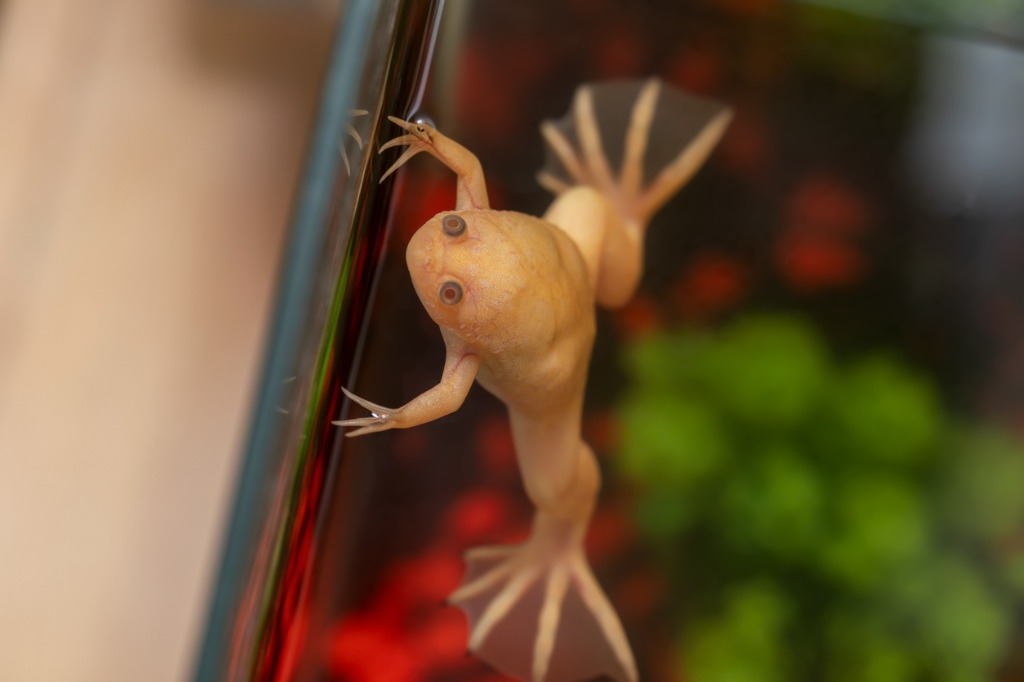
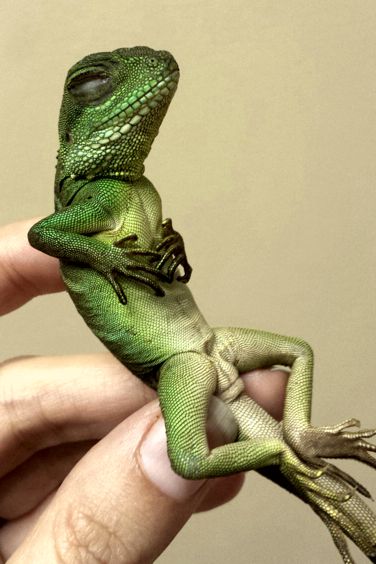 Asian water dragons, also known as the green water dragon or Chinese water dragon, can make beautiful pets but they have specific care needs that must be met in order for them to thrive. Once they are used to your presence, they are generally tame and easily handled. While they occasionally fight among themselves or compete for superiority with cage mates, they are rarely aggressive toward human keepers.
Asian water dragons, also known as the green water dragon or Chinese water dragon, can make beautiful pets but they have specific care needs that must be met in order for them to thrive. Once they are used to your presence, they are generally tame and easily handled. While they occasionally fight among themselves or compete for superiority with cage mates, they are rarely aggressive toward human keepers.
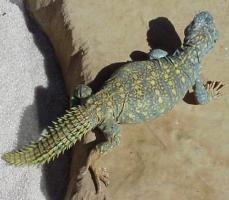 Spiny-tailed lizards (Uromastyx spp.), also commonly referred to as Uromastyx, are among the more popular pet lizards. There are at least 14 different species of these desert-adapted lizards although only a few are being regularly imported or bred in captivity.
Spiny-tailed lizards (Uromastyx spp.), also commonly referred to as Uromastyx, are among the more popular pet lizards. There are at least 14 different species of these desert-adapted lizards although only a few are being regularly imported or bred in captivity.
Unlike our furry friends the dog and cat, turtles and tortoises (known collectively as "chelonians") aren’t quite suited to wearing collars bearing ID tags. In the past chelonian enthusiasts have tried to establish forms of identification for their turtles and tortoises through various methods. Microchips (also know as transponders, PIT tags, or microchip transponders) provide a more long-lasting and reliable form of identification.
 How many times have you seen someone standing by the side of the road holding up a sign that says “BABY TURTLES FOR SALE”? Did you know that the roadside sale of turtles or any other animal is illegal in Arizona and Colorado?
How many times have you seen someone standing by the side of the road holding up a sign that says “BABY TURTLES FOR SALE”? Did you know that the roadside sale of turtles or any other animal is illegal in Arizona and Colorado?
 African spurred tortoises (Geochelone sulcata)
African spurred tortoises (Geochelone sulcata)Commonly referred to as sulcatas, are a hearty tortoise from the deserts of Africa. The do extremely well locally given proper care. They start off small and cute but grow to weights of over 75 pounds with exceptionally large individuals weighing more than 100 pounds. Please read the information below on how to properly care for these tortoises.
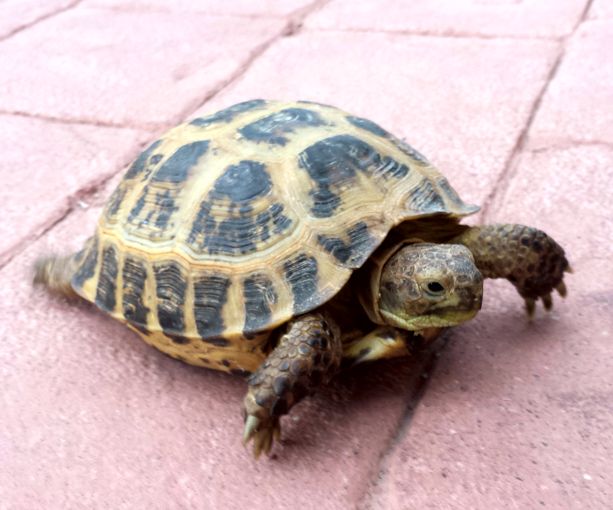 Russian tortoises (Testudo horsefieldi) are wonderful little tortoises with big personalities. Ranging in size from 5 to 8 inches long and weighing about a half pound to two and a half pounds (300 to 1500 gms), they can be kept outdoors in Arizona or can often do quite well with relatively modest indoor caging.
Russian tortoises (Testudo horsefieldi) are wonderful little tortoises with big personalities. Ranging in size from 5 to 8 inches long and weighing about a half pound to two and a half pounds (300 to 1500 gms), they can be kept outdoors in Arizona or can often do quite well with relatively modest indoor caging.
Pyramiding is the excessive upward growth of the scutes (the individual segments that make up the tortoise’s carapace or shell) that results in each segment taking on a pyramid-like shape.
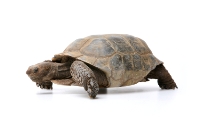 Upper Respiratory Tract Disease, often abbreviated as URTD or URP, is a common condition in Sonoran desert tortoises. "Upper respiratory tract disease" refers to an infection of the nose, nasal sinuses, and trachea (wind pipe) It typically starts as a clear nasal discharge that may persist for weeks. Sometimes the discharge dries around the nose and forms a white crust. Some tortoises may have bubbles blow out their nose and som
Upper Respiratory Tract Disease, often abbreviated as URTD or URP, is a common condition in Sonoran desert tortoises. "Upper respiratory tract disease" refers to an infection of the nose, nasal sinuses, and trachea (wind pipe) It typically starts as a clear nasal discharge that may persist for weeks. Sometimes the discharge dries around the nose and forms a white crust. Some tortoises may have bubbles blow out their nose and som



